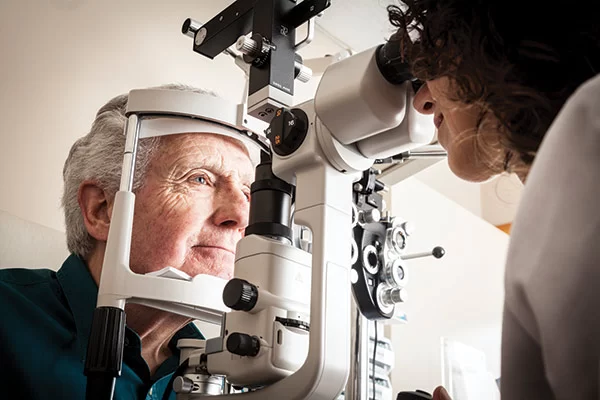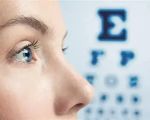
- Understanding Vision Loss in Seniors
- Importance of Specialized Eye Doctor Services
- Tailored Approaches to Vision Loss Care
- Real-Life Case Studies Showing Impact
- How to Access Quality Eye Care for Seniors
1. Understanding Vision Loss in Seniors
As people age, changes in vision are common, yet not all vision loss is the same or unavoidable. Seniors face unique challenges due to eye diseases such as macular degeneration, glaucoma, diabetic retinopathy, and cataracts, which are leading causes of vision impairment in older adults. Understanding the nature of these conditions is essential for both seniors and their caregivers to recognize early symptoms and seek appropriate care.
Vision loss in seniors can range from mild blurriness to severe impairment that affects daily activities like reading, driving, or recognizing faces. Often, it impacts independence and quality of life, making timely eye doctor services for seniors crucial. Detecting vision problems early on can prevent further deterioration and improve treatment outcomes.
Beyond medical diagnoses, seniors also experience difficulties adapting to lighting changes, glare, or contrast sensitivity, which may not be obvious but contribute significantly to their visual discomfort. Addressing these subtler aspects of vision loss is a vital part of comprehensive senior eye health care.
1.1 Common Vision Conditions Affecting Seniors
Among the most prevalent conditions, age-related macular degeneration (AMD) affects the central vision, making tasks like reading challenging. Glaucoma causes damage to the optic nerve, often without noticeable symptoms until advanced stages. Cataracts cloud the lens, leading to blurred vision but are treatable with surgery. Diabetic retinopathy, tied to diabetes, can cause serious vision impairment if not managed properly.
1.2 Impact of Vision Loss on Daily Life
The consequences of vision loss extend beyond eyesight itself. Seniors with impaired vision are at greater risk of falls, social isolation, and depression. This underlines the importance of integrating eye doctor services that not only focus on medical treatment but also on rehabilitation and support services tailored for the elderly.
2. Importance of Specialized Eye Doctor Services
Eye doctor services designed specifically for seniors recognize the unique physiological and emotional needs of older adults with vision loss. General eye care may overlook factors like comorbidities, mobility challenges, and cognitive decline that influence how seniors respond to treatment and manage their vision health.
Specialized ophthalmologists and optometrists trained in geriatric eye care provide comprehensive assessments that include visual acuity, peripheral vision, eye pressure, and retina health, while also evaluating how vision affects overall function. Such services often integrate multidisciplinary teams that coordinate with primary care physicians, occupational therapists, and social workers to deliver holistic care.
For example, seniors suffering from glaucoma require not only medication or surgery but also ongoing monitoring and education about medication adherence. Eye doctor services for seniors often provide this continuous support to ensure better outcomes.
2.1 Benefits of Senior-Focused Eye Care Clinics
Clinics specializing in senior eye health offer accessible environments, including transport assistance, longer consultation times, and patient education tailored to older adults. These clinics also focus on vision rehabilitation technologies like magnifiers, adaptive lighting, and training to maximize remaining vision.
2.2 Emotional and Psychological Support
Dealing with vision loss can be emotionally challenging. Senior-focused services often provide counseling or connect patients with peer support groups, helping them adapt psychologically and maintain social engagement.
3. Tailored Approaches to Vision Loss Care
Effective management of vision loss in seniors goes beyond clinical treatment. Tailored care plans consider the individual’s lifestyle, living environment, and personal preferences to optimize independence and safety.
Eye doctors collaborate with patients and families to develop personalized strategies, such as home modifications to improve lighting and reduce fall risk, or training in assistive technologies like screen readers and electronic magnifiers. This personalized approach ensures that seniors remain active and engaged despite their visual challenges.
3.1 Integrating Technology and Innovation
Recent advances in low vision aids and digital tools have revolutionized eye care for seniors. Devices that convert text to speech or enhance contrast can dramatically improve day-to-day functioning. Eye doctor services for seniors increasingly incorporate these innovations to provide customized solutions.
3.2 Coordinated Care and Follow-Up
Chronic eye conditions require consistent monitoring and adjustment of treatment. Establishing regular follow-up schedules and clear communication channels ensures that seniors receive timely interventions and adapt care plans as needed.
4. Real-Life Case Studies Showing Impact
Consider the story of Mrs. Thompson, a 78-year-old retiree diagnosed with early-stage macular degeneration. After visiting a specialized senior eye clinic, she was fitted with adaptive magnification tools and received personalized guidance on nutrition and eye exercises. Within months, Mrs. Thompson reported improved reading ability and greater confidence in managing daily tasks.
Another example is Mr. Chen, an 82-year-old with glaucoma who was struggling to remember his eye drop schedule. Through integrated care at a senior-focused clinic, his medication routine was simplified, and a caregiver was involved in reminders. This approach reduced his intraocular pressure and prevented further vision loss.
These cases highlight how dedicated eye doctor services for seniors can transform lives by combining medical expertise with practical support tailored to older adults’ needs.
5. How to Access Quality Eye Care for Seniors
Finding the right eye doctor services for seniors with vision loss is critical. It is advisable to seek clinics or professionals who specialize in geriatric ophthalmology or optometry. The website Eye Docs provides a reliable resource where seniors and their families can explore recommended services, products, and support tailored specifically for aging eyes.
When selecting care providers, consider factors such as the availability of comprehensive vision assessments, accessibility features, follow-up support, and the integration of rehabilitation services. Family involvement in consultations can also enhance communication and adherence to treatment plans.
Early and regular eye examinations are key to preserving vision and enhancing seniors’ quality of life. Proactive engagement with specialized services ensures that vision loss does not become a barrier to enjoying life’s later years.








